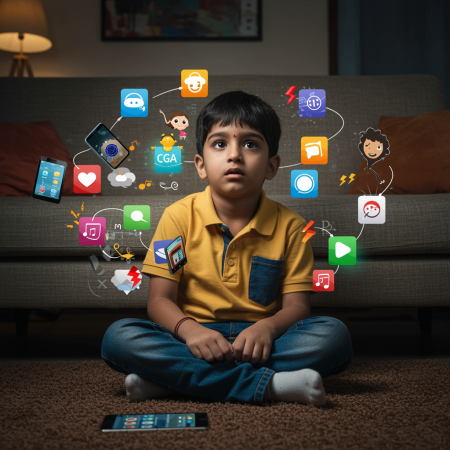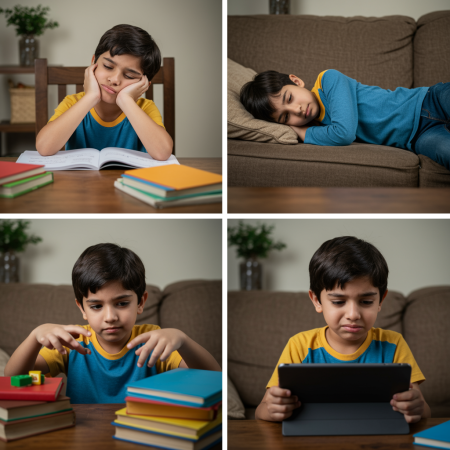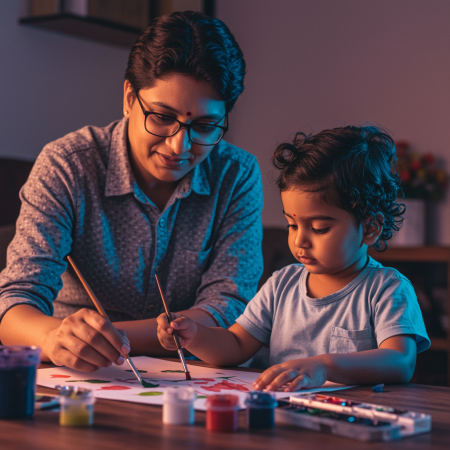Everywhere we go, screens are with us. At home. In cars. In our hands. For many parents, handing a screen to a child feels like a quick solution. It keeps them busy. It gives us a moment to catch our breath. But slowly, silently, something is changing inside their minds.
It’s called the Popcorn Brain Effect. And even though it sounds harmless, its impact can shape how our children think, feel, and learn.

What Is the Popcorn Brain Effect?
Popcorn Brain is a term used by researchers to explain what happens when the brain gets used to fast-paced digital content. Think of short videos, gaming apps, or cartoons with quick scenes and loud sounds. This kind of content gives the brain instant rewards. The brain gets used to it. It wants more. It struggles with anything slow or quiet.
Just like popcorn popping in a microwave, a child’s thoughts start jumping quickly. One moment here, the next somewhere else. Their brain wants speed. But life doesn’t work that way. Learning doesn’t work that way.
Why This Is a Growing Problem for Children
Children today are growing up in a world that moves fast. Many toddlers are introduced to screens before they learn how to talk. Videos autoplay. Games reward instantly. They don’t need to wait. They don’t need to try again.
Over time, their brains start to expect life to work like that. But real life is full of waiting, effort, and slow progress. This mismatch becomes a problem. It shows up at home. It shows up in school. And sometimes, we wonder why our child seems distracted or frustrated all the time.
This kind of digital overstimulation quietly shapes how their brain develops. It feeds the habit of jumping from one thing to the next without thinking deeply.
What Happens Inside the Brain
When children watch fast-paced content, their brain releases dopamine. It’s a chemical that makes them feel excited. Happy. Alive.
But when that chemical is released too often, the brain starts to crave it. Without it, everything feels dull. Reading a book? Too slow. Building a puzzle? Boring. Listening to a story? Hard to focus.
Too much digital input can even lead to cognitive overload. The brain is no longer able to slow down. It starts to look for the next burst of excitement. This is not just a behaviour problem. It’s a brain wiring issue.
Is Your Child Losing Focus? Here’s What to Look For

If your child:
- Gets bored quickly
- Struggles to finish simple tasks
- Keeps switching between activities
- Gets upset when screen time ends
- Has trouble listening or following steps
These may be early signs that their attention span is being affected.
When children lose the ability to focus, it can impact how they learn, solve problems, and manage emotions. The early years are key to building strong mental habits. With the right support, these patterns can still be reshaped.
What Parents Can Do to Help

You don’t need to remove all screens. As parents, the goal is to bring back balance.
One powerful way to do that is by staying involved in your child’s early learning journey.
Here are some small but powerful ways to support your child’s focus and attention.
- Set screen-free hours at home
- Read together every day
- Play board games or puzzles
- Go outside and explore nature
These small moments teach the brain how to pause. How to focus. How to stay with something even when it feels slow.




